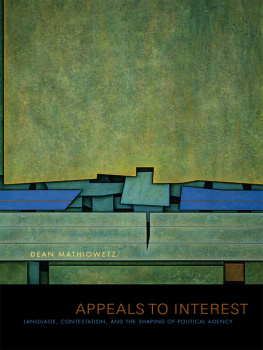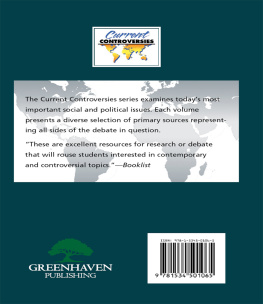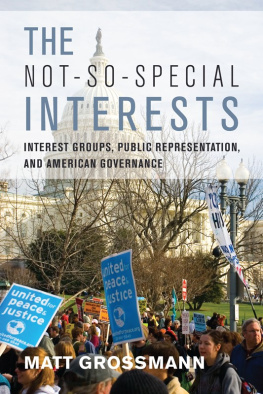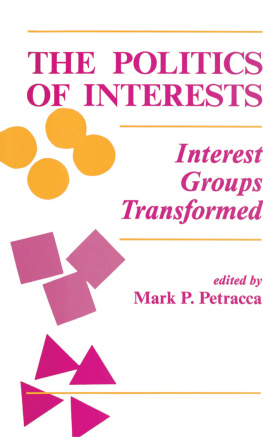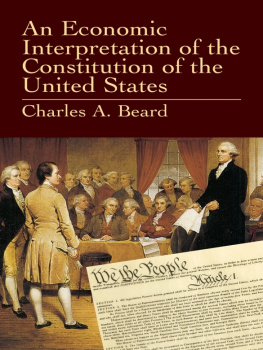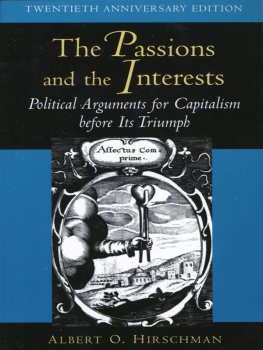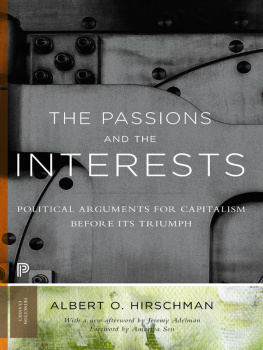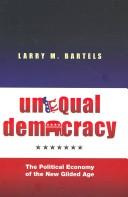Copyright
LIBRARY OF CONGRESS CATALOGING-IN-PUBLICATION DATA
Mathiowetz, Dean, 1972
Appeals to interest : language, contestation, and the shaping of political agency /
Dean Mathiowetz.
p. cm.
Includes bibliographical references and index.
Summary: Explores the theoretical and political implications of self-interest within the context of neoliberal political, theoretical, and methodological imperativesProvided by publisher.
ISBN 978-0-271-04850-5 (cloth : alk. paper)
1. Self-interestPolitical aspects.
2. Political psychology.
I. Title.
JA74.5.M38 2011
320.01'9dc22
2010039084
Copyright 2011 The Pennsylvania State University
All rights reserved
Printed in the United States of America
Published by The Pennsylvania State University Press,
University Park, PA 16802-1003
The Pennsylvania State University Press is a member of
the Association of American University Presses.
It is the policy of The Pennsylvania State University Press to use acid-free paper. Publications on uncoated stock satisfy the minimum requirements of American National Standard for Information SciencesPermanence of Paper for Printed Library Material, ansi z39.481992.
This book is printed on Natures Natural, which contains 50% post-consumer waste.
Contents
Contents
Acknowledgments
1 Introduction: The Politics of Interest
2 Property, Usury, and the Juridical Subject of Interest
3 Appeals to Interest in Seventeenth-Century England
4 Contesting Sovereignty: Interest in Thomas Hobbes
5 A Historiography of Liberal Interest and the Neoliberal Self
6 Interest in Political Studies: Action, Grouping, and Government
Epilogue: The Language of Interest as a Critical Theory of Politics
Selected Bibliography
Index
Acknowledgments
Acknowledgments
A book writes its author, most of all through the relationships that it creates, sustains, and even tests at times. The debt of my gratitude to friends and inter-locutors for working through this book and its process is humbling to reckon. Foremost I thank my advisers and teachers for the challenges and inspiration: Wendy Brown, Mary Dietz, Lisa Disch, James Farr, Hanna Pitkin, Michael Rogin, and Paul Thomas. Many others commented on various parts of this work throughout its several stages of development and maturation. Stephen Engelmann in particular labored generously over the entire manuscript more than once to provide many helpful suggestions and criticisms, large and small, for its improvement. I am also thankful for the work of a congeries of friends, colleagues, mentors, reviewers, and interlocutors: Mark Anderson, Douglas Dow, Elisabeth Ellis, John Gunnell, Jimmy Klausen, Bronwyn Leebaw, Patchen Markell, Robert Meister, Benjamin Read, Melvin Richter, Ronald Schmidt Jr., Vanita Seth, Anna Marie Smith, Sandy Thatcher, Megan Thomas, Toon van Houdt, and Darren Walhof. For assistance with research, I thank Paul Held and Alex Hirsch. Sarah Johnson prepared the index. Andrew Lewiss work on the details and prose of the text was helpful beyond measure. It goes without saying that the remaining shortcomings of this work are mine alone.
For many years of intellectual camaraderie and friendship, I am grateful to Ivan Asher, Mary Bellhouse, Cristina Beltrn, John Cioffi, Julie Cooper, Kennan Ferguson, Michaele Ferguson, Jason Frank, Jill Frank, Jennet Kirkpatrick, Nancy Luxon, Robyn Marasco, James Martel, Keally McBride, Susan McCarthy, Kirstie McClure, Davide Panagia, Elliot Posner, Torrey Shanks, Sharon Stanley, Simon Stow, Brian Weiner, and Gillian Weiss. And thanks to friends and colleagues at UC Santa Cruz, whose encouragement was indispensable: Cindy Bale, Eva Bertram, Michael Brown, Annette Clear, Glenda Dixon, Kent Eaton, Debbie Gould, Phil Hammack, Kimberly Lau, Ronnie Lipschutz, Eleonora Pasotti, Dana Rohlf, Pat Sanders, Marianna Santana, Roger Schoenman, Anne Tuttle, Michael Urban, and Dan Wirls.
The love, support, and diversions of family and friends outside the academy have underwritten my effort every step of the way. Thanks of course to my family: Mom, Dad, Jeff, and Allison. I am particularly grateful to Peter Maleitzke for his partnership in this and so many endeavors. Many thanks as well to John Cronin, Jennifer DeToy, Matthew Ferguson, Niels Hooper, James Loduca, Stephen Massey, Kimberly Milbrath, Yingwei Qi, Ruth Woodruff, and last but never least, Bella the Dog.
I benefited from opportunities to present parts of this work to the Political Science Department at Williams College, to the Center for Cultural Studies at UC Santa Cruz, to the Political Theory Colloquium at the University of Wisconsin, Madison, and at the University of Minnesota. A version of appeared as Interest Is a Verb: Arthur Bentley and the Language of Interest, in Political Research Quarterly 61, no. 4 (December 2008). I am grateful for permission to publish new versions of these works.
1 Introduction
INTRODUCTION
The Politics of Interest
When a thing ceases to be a subject of controversy, it ceases to be a subject of interest.
WILLIAM HAZLITT, the spirit of controversy
Whats the Matter with Interest?
Thomas Franks 2004 best seller, Whats the Matter with Kansas? spoke to the puzzlement of many Democratic voters regarding the ability of the Republicans to win the votes of people who were harmed financially by GOP policies.1 Frank claims that white and rural working- and middle-class Kansansand their counterparts in states whose electoral votes are up for grabsact against their interests when they support Republican candidates at the polls. The power of Republicans to induce these folks to vote against their interests seemed, to many observers, a formidable barrier to the pursuit of better economic and social policies for all Americans.2 Frank points to the culture war that began with Nixon, and then to the galvanization of abortion opponents in Wichita in the early 1990s, to explain this subversion of interest. This political development was fatefully turned to the advantage of the Right when the Democratic Leadership Council began to drop planks of economic benefit to the middle class from the party platform. All of these developments, he says, turned the politics of this country upside down.3 Turning politics right side up again, as Frank sees it, means restoring rationality by convincing voters to attend to their bottom line when calculating how to spend their votesgetting them to act, once again, in their interests.
While the cultural turn played out in American politics and academic disciplines over several decades, the financial crisis of fall 2008 also brought the centrality of interest to economy and government into sharp relief, and again interest became a puzzle. In the wake of cascading bank failures, the demise of Wall Street giant Bear Stearns, and an unprecedented government bailout of financial institutions like the American Insurance Group, Alan Greenspan testified before the House Committee of Oversight and Government Reform on October 23, 2008. Greenspans thousand-word statement addressed several areas of concern, but just twenty-five of those words became the sound bite that was played and replayed across the news media. Those of us who have looked to the self-interest of lending institutions to protect shareholders equitymyself especially, he said, are in a state of shocked disbelief. With these words, Greenspan registered the degree to which the primacy of self-interest had been an article of faith among policymakers, as well as a linchpin of finance capitalism, while at the same time attesting to its fallibilityan admission all the more notable coming from a self-professed disciple of Ayn Rand. This potent morsel was mostly ignored by the Right, but was greeted by a chorus of self-satisfaction by a few left commentators in the media and academia. To these latter critics, Greenspans confession exposed the fundamental bankruptcy at the heart of neoclassical economics and the neoliberal free-market policy prescriptions that had defined American policymaking since Ronald Reagan.

